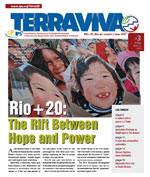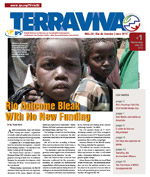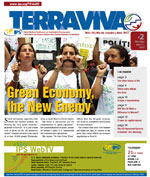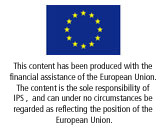By Thalif Deen
UNITED NATIONS, May 31, 2012 (IPS) – Canada, in a dramatic political turnaround, has signaled its willingness to recognise water and sanitation as a basic human right.
As negotiations continue over the Rio+20 plan of action on sustainable development to be adopted in Brazil next month, Canada became one of the last Western nations to drop its opposition to a reference to water as a human right in the document titled “The Future We Want.”
Maude Barlow, national chairperson of the Council of Canadians, one of Canada’s largest social justice advocacy organisations, said it took “unprecedented pressure” to get the government in Ottawa to change its position.
“The shift is a good thing, but words are not enough. We need actions, and the government’s actions directly contradict respect for the human right to water,” said Barlowe, a former U.N. senior advisor on water to the president of the General Assembly.
Asked what next, she told IPS: “That’s a very good question.” She said the government is supposed to prepare a report on its plan of action and submit it to the United Nations.
“You can be sure we will be sitting on them,” she added.
When the U.N. General Assembly adopted a resolution in July 2010 recognising water and sanitation as a basic human right, 122 countries voted for it, with 41 abstentions, but with no negative votes.
The United States, along with Canada, abstained – and so did some of the European, as well as industrialised countries, including Britain, Australia, Austria, Greece, Sweden, Japan, Israel, South Korea, Luxembourg, the Netherlands, Denmark, and Ireland.
But several developing nations, mostly from Africa, also abstained on the vote, siding with rich industrial countries. These included: Botswana, Ethiopia, Kenya, Lesotho, Zambia, Guyana and Trinidad and Tobago.
At the initial Rio+20 negotiations last year, several human rights and non-governmental organisations (NGOs) warned that the human right to water and sanitation was under threat.
Anil Naidoo, of the Canada-based Blue Planet Project, said that as recently as last month, Canada was isolated in the Rio+20 negotiations as the only country to publicly claim there is no legal basis for the right and call for its deletion.
“This position was untenable, however, almost two years after the General Assembly passed a resolution recognizing the right, followed by three subsequent confirming Human Rights Council resolutions’, he added.
The U.N. Conference on Sustainable Development (UNCSD), also known as Rio+20, will be a summit meeting of world leaders, scheduled to take place in Brazil Jun. 20-22.
A Preparatory Committee (PrepCom), comprising all 193 members states, is currently conducting another round of weeklong negotiations, beginning last Tuesday, aimed at finalising the plan of action, informally called the zero draft.
Naidoo said the first indication that states would try to undermine the human right to water and sanitation was when the UK, working inside the European Union (EU), proposed deleting paragraph 67 of the zero draft, which explicitly recognised the human right to water and sanitation.
After pressure from several international NGOs, and a rare explicit sanction from the Special Rapporteur on Water Catarina de Albuquerque, the EU backed down and other governments pushed back against the UK, notably Spain, said Naidoo.
But still, Canada, the other main longstanding opponent of the human right to water and sanitation, continued to call for deletion of paragraph 67 and in the next round was joined by the United States and Israel.
“Working with allies inside the negotiations, we increased the pressure and with staff from the Office of the High Commissioner for Human Rights, were able to get the High Commissioner to call for human rights to be protected in the Rio negotiations.” he added.
Naidoo said “this has been a long struggle for those of us in Canada.”
“We are aware that recognition is only the first step towards our real goals of implementation and realisation,” he added.
“We also know those governments and corporations who are against the human right will continue to try ever means to limit the scope and impact of this victory; still, (but) we are making progress,” he said.
(END)








 Add to Google
Add to Google







